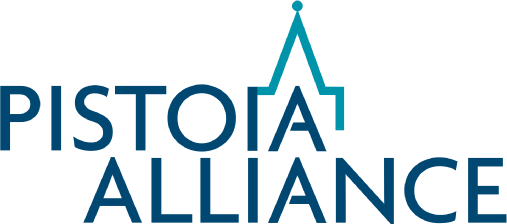EU conference and two-day ‘hack the lab’ hackathon discusses how artificial intelligence (AI) and the Internet of Things (IoT) will impact life sciences
London, 19th March, 2018 – The Pistoia Alliance, a global, not for profit alliance that works to lower barriers to innovation in life sciences R&D, is calling upon the industry to support the ‘Lab of the Future’ (LoTF) through greater collaboration. At The Pistoia Alliance’s annual EU member conference in London, president of the Pistoia Alliance, Dr Steve Arlington, urged stakeholders to come together to help technology continue to drive change in the industry and to amplify R&D budgets. Other speakers, including from Merck, GlaxoSmithKline, and SAP, also discussed how future technologies like AI and the use of Real World Data (RWD) will contribute to the development of the lab. Throughout the conference, the goal was to identify key areas where The Pistoia Alliance can set up collaborative projects that will make a real difference to research and ultimately to patients.
“For the past 20 years the lab has looked largely the same. But in that time, how scientists and researchers work and live has changed dramatically. If pharmaceutical companies want to support R&D outcomes that truly benefit patients, then building the Lab of the Future is paramount,” commented Dr Steve Arlington, President, The Pistoia Alliance. “R&D budgets in the life sciences are under greater strain than ever before. Couple this with increasingly stringent regulatory issues and the shifting political situation around Brexit – and pharmaceutical companies are under pressure to deliver. They must now seek ways to amplify their budgets through greater collaboration, cooperation, and data sharing, and by exploring future technologies that will change the lives of patients.”
A second, guest keynote was given by William (Bill) Burns, former CEO of Roche Pharmaceuticals and now a member of The Pistoia Alliance’s Advisory Board. Bill spoke to Alliance members on the current models of pharmaceutical R&D and the commercial challenges the industry faces. Bill discussed how society’s desire for new medicines and healthcare intervention has grown, but that there is a funding gap in how innovations are delivered. He also discussed the need for pharmaceutical companies to accurately measure the medical benefit of a therapy for a patient, so that society and payers reward a drug with a price that enables a return on the investment and risk taken by the shareholders. To enable this, Burns noted, innovation happens at the interfaces, not in the silos – and greater collaboration is required.
As part of the conference, a key agenda item was an update on The Pistoia Alliance’s President’s Series Hackathon held on the 12th and 13th of March. The theme was ‘Hack the Lab’ and the event brought together stakeholders from life sciences, healthcare, academia, and technology. The hackathon entailed a series of challenges, focused on AI insight, the ‘Future Corner’, and health and safety for the LoTF. Participants aimed to build prototypes to show how to use AI to interpret instrument logs, explore how new tools can transform the lab, and to find novel uses for datasets and associated lab data. Participants experimented with Amazon Alexa, Google Home, and Microsoft Cortana, as well as AR interfaces, VR headsets, and ‘smart’ glasses. Among the winners were a team from The University of Southampton, who created a ‘friendly’ lab safety assistant based on Alexa, using data from The Pistoia Alliance’s Chemical Safety Library.
The Pistoia Alliance’s European conference was attended by 165 life science professionals from top 10 pharma companies, leading biotechs, and tech firms. Speakers and panel attendees converged on a range of topics – including a panel on how data security can be an enabler in life science innovation, moderated by Richard Horne of PwC. A presentation on why collaboration is essential to the development of new medicines was delivered by Dr Menelas N Pangalos of AstraZeneca. The Pistoia Alliance was created to address the barriers and challenges that companies face during life sciences R&D. Recent successful projects include the Chemical Safety Library Service (CSL), the AbVance Project, and the launch of the User Experience for Life Science (UXLS) Toolkit. In 2017, the Alliance also surveyed members views of blockchain and AI in life sciences, to identify where the Alliance can help support adoption.
For more information about The Pistoia Alliance, please visit: pistoiaalliance.org.
–ENDS–
About The Pistoia Alliance:
The Pistoia Alliance is a global, not-for-profit members’ organisation made up of life science companies, technology and service providers, publishers, and academic groups working to lower barriers to innovation in life science and healthcare R&D. It was conceived in 2007 and incorporated in 2009 by representatives of AstraZeneca, GSK, Novartis and Pfizer who met at a conference in Pistoia, Italy. Its projects transform R&D through pre-competitive collaboration. It overcomes common R&D obstacles by identifying the root causes, developing standards and best practices, sharing pre-competitive data and knowledge, and implementing technology pilots. There are currently over 80 member companies; members collaborate on projects that generate significant value for the worldwide life sciences R&D community, using the Pistoia Alliance’s proven framework for open innovation.
Media Contacts:
Carmen Nitsche
Pistoia Alliance
+001 510-589-3355
carmen.nitsche@pistoiaalliance.org
Michelle Allison
Spark Communications
+44 207 436 0420
